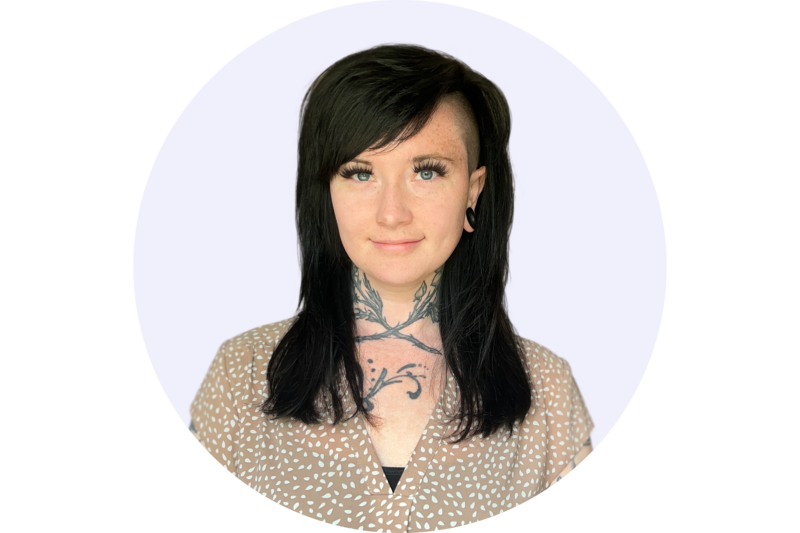
Table of Contents
Pink Cloud Syndrome: Understanding Euphoria in Early Recovery

Written By: Ashley Laderer

Clinically Reviewed By: Rebecca Holland
August 12, 2024
6 min.
Feeling amazing in the early phase of recovery? It might be pink cloud syndrome. Read on to learn about the pink cloud phase and what it means for early and long-term recovery.
Learn more about our Clinical Review Process
Table of Contents
If you struggle with substance use disorder (SUD), recovery is a difficult but rewarding journey of ups and downs. One of the most notable “ups” is what’s known as pink cloud syndrome. Pink cloud syndrome isn’t a formal diagnosis; rather, it’s used to describe a pleasant phenomenon in early recovery.
While this phase feels great and full of positive feelings –– even euphoria –– it can potentially be misleading. It’s crucial to understand pink cloud syndrome and the realities of sobriety to ensure long-term recovery. Here’s what you need to know about pink cloud syndrome, as well as how to ensure lasting addiction recovery beyond the euphoric pink cloud phase.

Virtual substance use disorder treatment from home
Evidence-based therapy and medication-assisted therapy for full recovery.
What is pink cloud syndrome?
Pink cloud syndrome is when someone in early recovery feels euphoria, optimism, and excitement about recovery, says Sarah Lyter, LPC, a Senior Primary Therapist with Charlie Health specializing in SUD. The so-called syndrome usually occurs a month or so after becoming sober once the difficulties of the initial phase of withdrawal have worn off.
“When you’re using substances, your dopamine and serotonin receptors get really out of whack because the drugs really impact those systems. Once you get sober, your brain is like trying to get back to a place of homeostasis,” Lyter says. Due to this, there are many chemical changes in the brain, leading to positive changes in mood. This is a stark contrast to the terrible feelings associated with initial withdrawal. Although there isn’t scientific research conducted surrounding the prevalence of pink cloud syndrome, it’s anecdotally a common experience for newly sober people.
Where does the term pink cloud come from?
The name “pink cloud” comes from the feelings of euphoria and being on “cloud nine” and looking at the world through “rose-colored glasses,” Lyter says. Looking through rose-colored lenses refers to seeing the world through a very positive, optimistic light –– sometimes ignoring some of the not-so-positive reality or hardships.

IOP for Addiction: How Intensive Outpatient Programs Treat Substance Use Disorders
Charlie Health Editorial Team
How to recognize pink cloud syndrome
“Pink cloud syndrome feels good, especially once you’ve gotten out of the cycle of addiction, where you’ve arguably been in a nightmare for however long,” Lyter says. “It can be a big sense of relief –– and I think that can really increase motivation for recovery and change.”
According to Lyter, some signs of pink clouding in early recovery are:
- Euphoria
- Optimism
- Motivation to stay sober
- Hopefulness
- Improved energy levels
- Feeling overall “better”
Not to mention, the pink clouding can help you build confidence in yourself in recovery, Lyter says. Plus, it’s a great opportunity to establish healthy habits and develop your recovery plan because you’re feeling good and you have the energy and the motivation, she adds.
While this all sounds great, there is a little bit of a downside to the pink cloud phase despite all the positive feelings. “You might be having unrealistic expectations about what recovery is going to be like. It’s really hard, and it can be really emotionally painful and trying,” Lyter says. “If you get into the state of euphoria and you think recovery is going to be a cakewalk, you’re really not prepared –– and when it comes to addiction, failing to prepare is preparing to fail.”
Because of this, individuals who are in the pink cloud phase may think addiction recovery is easy, skipping out on treatment, education, relapse prevention tools, and overall recovery prep, which can lead them to a more vulnerable state in the future once they’ve stopped pink clouding, Lyter says.
How long does pink cloud syndrome last?
There is no set time for how long pink cloud syndrome lasts — every person is different. Recovery is a very individualized process, including how long this phase may persist.
Based on her experience, Lyter says pink cloud syndrome typically occurs one to five months into recovery. It may last for a few months in this time period, but everyone is different. Since there isn’t scientific research surrounding pink cloud syndrome, we don’t have any official statistics on how long it tends to last for most people.
How to ensure long-term recovery after the pink cloud phase
While the pink cloud phase can make you feel on top of the world, it doesn’t last forever, and recovery isn’t necessarily a walk in the park. Here are a few tips for sober life and lasting recovery:
Educate yourself
Lyter says it’s important to learn about the stages of early recovery and what emotionally happens often during those stages so you’re better prepared to navigate them throughout treatment.
Set realistic expectations
If you’re experiencing pink cloud syndrome now, it’s important to take a step back and set realistic expectations. While you might be enjoying euphoria and excitement right now, recovery won’t always be this easy. You must understand that substance use recovery is a long-term process with many ups and downs.
Prepare for challenges
It’s not a matter of if challenges arise, but when. “Work with a counselor to create a relapse prevention plan and know what that entails. Know what the warning signs of relapse and the relapse process are,” Lyter says. This goes along with setting realistic expectations.
Have a support system
Social support is crucial throughout addiction treatment and recovery. In addition to opening up to your loved ones, it’s helpful to connect with other people living a sober life. Lyter says you may opt for a 12-step program or other sober support groups of choice. You can also join sober clubs and communities to find other individuals in the same shoes as you. Remember: you don’t have to live a sober life alone!
Stick to a routine
Maintaining structure in your days and following a routine is important for both early and long-term recovery, Lyter says. Make sure your routine involves eating healthily, exercising regularly, engaging in hobbies, and doing things that bring you joy. Of course, you’ll also want to stick to any treatment plan that’s in place.
Seek treatment from a mental health professional
When you have SUD, professional addiction treatment is crucial. Seeing a mental health professional for individual therapy, especially one who specializes in SUD and addiction treatment, can help guide you on your recovery journey and aid in relapse prevention.

How Charlie Health can help
If you or a loved one is struggling with substance use disorder, Charlie Health is here to help. Charlie Health’s virtual Intensive Outpatient Program (IOP) provides more than once-weekly mental health treatment for people who are dealing with complex mental health conditions, including substance use disorders and co-occurring mental health conditions.
Our compassionate clinicians meet you where you are on your addiction recovery journey and create personalized treatment plans to help you heal. They will investigate the root causes of your individual struggles, teach you effective coping skills, provide empathetic support throughout the recovery process, prevent relapse, and promote lasting recovery. We incorporate evidence-based therapies into individual counseling, family therapy, and group sessions. With this kind of holistic treatment, recovery from substance use disorder is possible. Fill out the form below or give us a call to start healing today.




